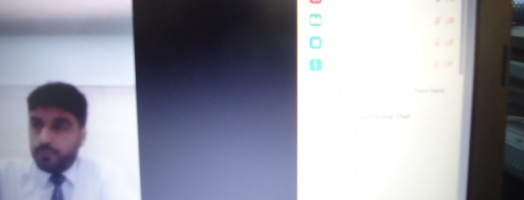Collecting money in the light of Corona pandemic: between the legal text and the theory of force majeure
Gaza – On Wednesday 29th of July 2020, the Institute of Law (IoL) of Birzeit University organised a legal encounter on “Collecting money in the light of Corona pandemic: between the legal text and the theory of force majeure”. It was held in partnership with Konrad Adenauer Stiftung-Palestinian Territories. The legal Advisor, Mr. Maan Al Atrash, had spoken at the legal encounter.
Mr. Maan Al Atrash had started his speech by talking about collecting money through legal methods and their types, including obligations and debts through checks, bills of exchange, organized and customary debt bonds, and financial transfers according to the Palestinian Trade Law No. (2) for the year (2014) and Implementation Law No. (23) for the year (2005).
Al-Atrash then talked about the ways of collecting money, as he indicated that there is the friendly way through mediators or lawyers, and it may be done through a specific compromise to pay in cash or in installmints as appropriate. Or through the Public Prosecution office, submitting a legal complaint for a check without balance as it is a crime punishable by law. The matter is transferred to the judiciary to apply the appropriate penal Code rules. After the completion of the criminal part, it is also possible to collect money through execution order obtained through the competent court, which is usually the court of first instance. In addition, one of the methods is to resort directly to civil courts, when the original debt is not proven according to official or customary document.
Then he reviewed the topic of collecting debts, obligations and money from a practical point of view, as a practical experience before the competent authorities, and before the outbreak of Corona pandemic. In addition to the impact of economic conditions that Gaza Strip had been going through for more than ten years, and their impact on the collection process.
Then he talked about the issue of collecting money and debts in the light of Corona pandemic, the range of legal enforcement of force majeure and emergency circumstances, the difference between them, and whether Corona pandemic is considered as a force majeure that prevented the collection of money, or an emergency circumstance from a legal perspective? And he added that there are two different opinions about adapting the impact of the pandemic, whether it is a force majeure or an emergency circumstance, as he defined both force majeure and emergency circumstances, and had pointed out the difference between them.
Al-Atrash added that there is a split in opinions about the legal adaptation to deal with this pandemic, and he indicated to the legality of applying one of the two theories.
At the end of his speech, Al -Atrash referred to the practical experience of dealing with Corona pandemic before the official authorities, during the period of declaring the state of emergency; and the circulars issued by the Monetary Authority to deal with this crisis; in addition to the provided solutions to deal with the collection of money under the circumstances of Corona pandemic. The discussion was opened, which included many questions, interventions and recommendations.











